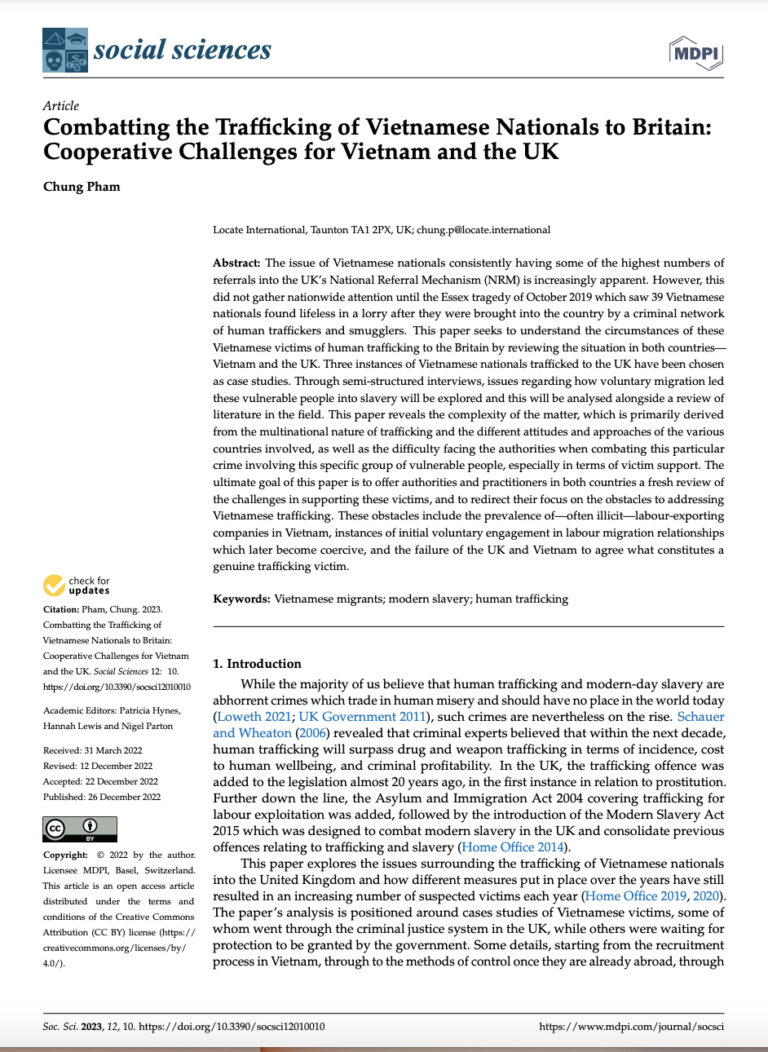The issue of Vietnamese nationals consistently having some of the highest numbers of
referrals into the UK’s National Referral Mechanism (NRM) is increasingly apparent. However, this
did not gather nationwide attention until the Essex tragedy of October 2019 which saw 39 Vietnamese
nationals found lifeless in a lorry after they were brought into the country by a criminal network
of human traffickers and smugglers. This paper seeks to understand the circumstances of these
Vietnamese victims of human trafficking to the Britain by reviewing the situation in both countries—
Vietnam and the UK. Three instances of Vietnamese nationals trafficked to the UK have been chosen
as case studies. Through semi-structured interviews, issues regarding how voluntary migration led
these vulnerable people into slavery will be explored and this will be analysed alongside a review of
literature in the field. This paper reveals the complexity of the matter, which is primarily derived
from the multinational nature of trafficking and the different attitudes and approaches of the various
countries involved, as well as the difficulty facing the authorities when combating this particular
crime involving this specific group of vulnerable people, especially in terms of victim support. The
ultimate goal of this paper is to offer authorities and practitioners in both countries a fresh review of
the challenges in supporting these victims, and to redirect their focus on the obstacles to addressing
Vietnamese trafficking. These obstacles include the prevalence of—often illicit—labour-exporting
companies in Vietnam, instances of initial voluntary engagement in labour migration relationships
which later become coercive, and the failure of the UK and Vietnam to agree what constitutes a
genuine trafficking victim.

